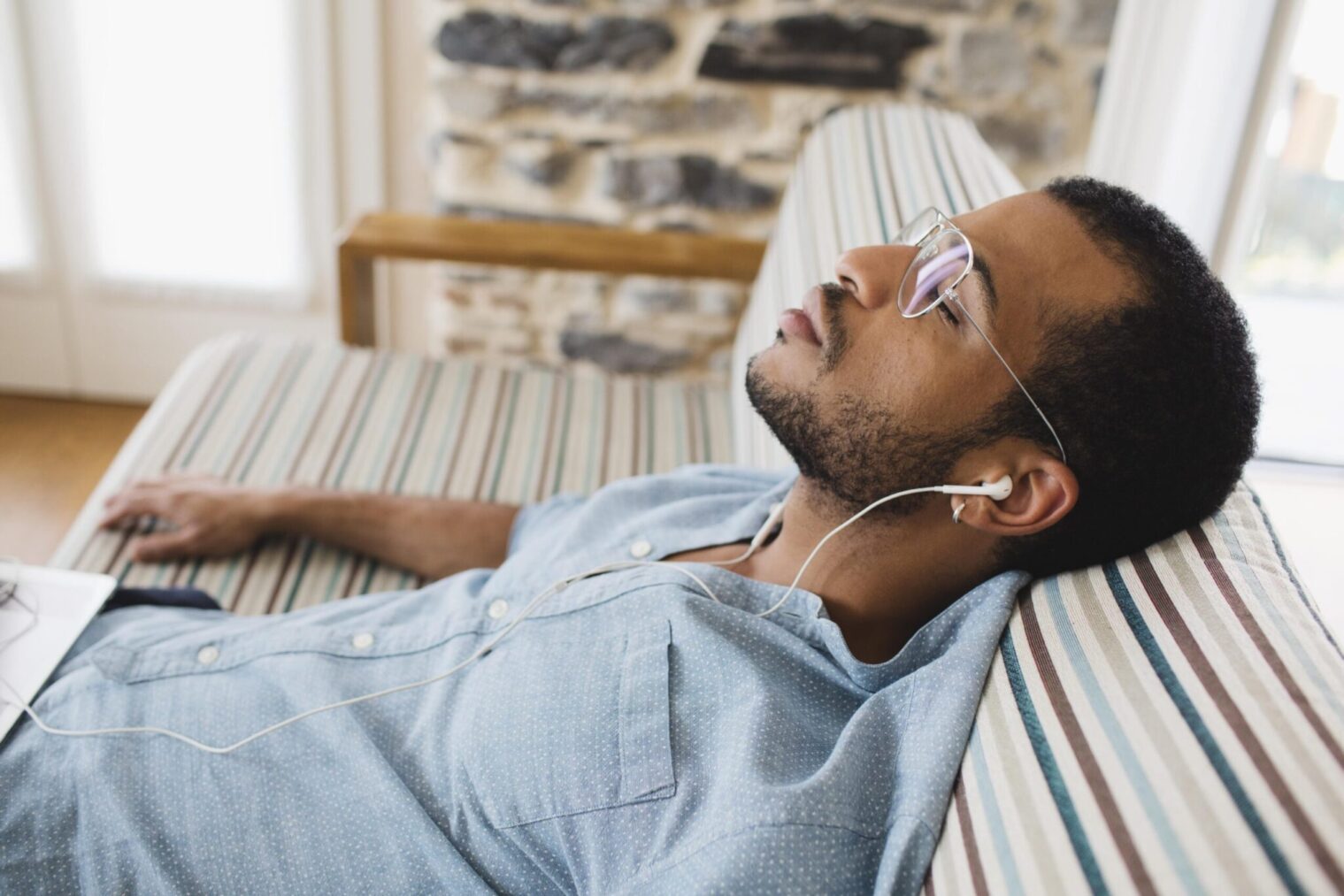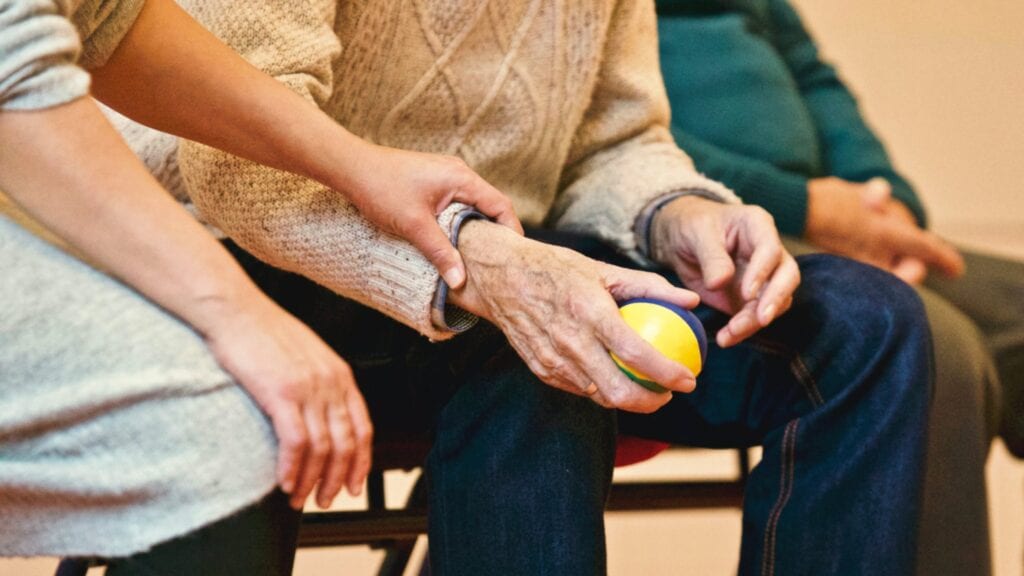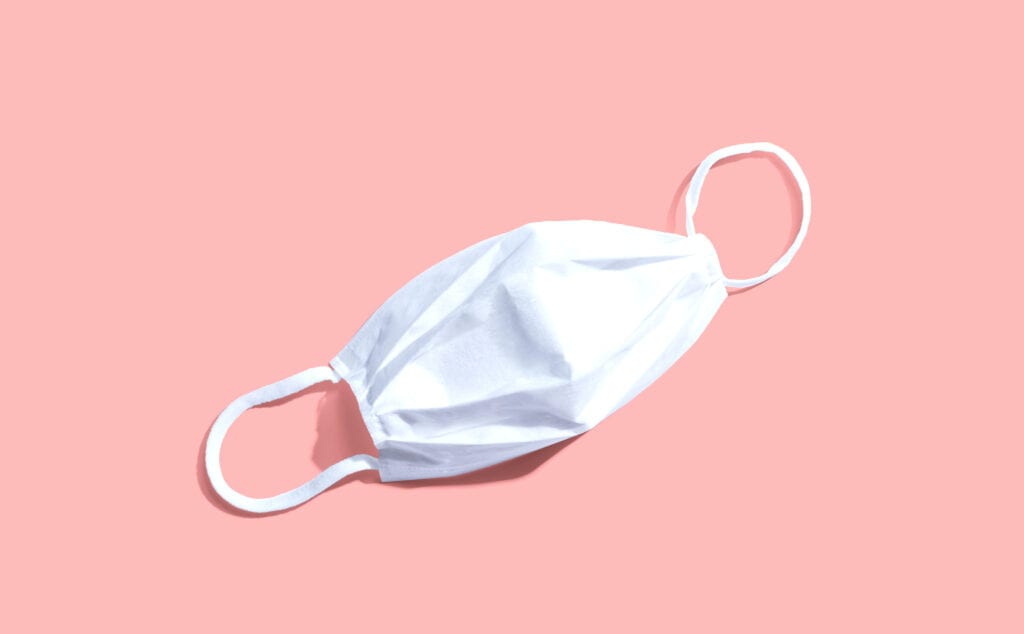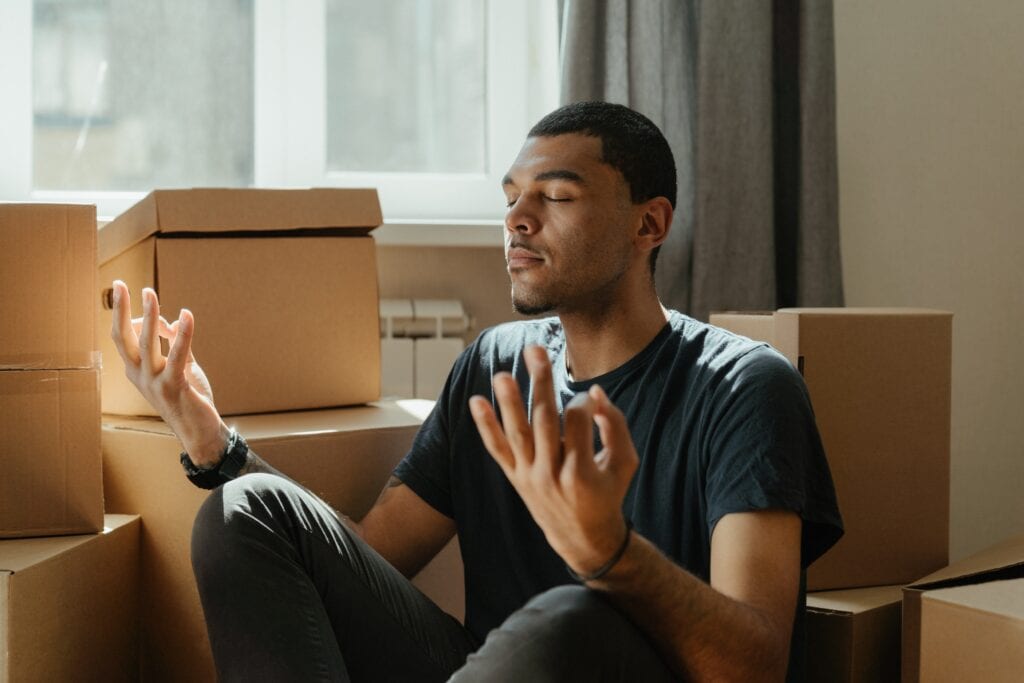2. Build conscious relaxing moments into your everyday life
An old Zen teaching says, “Meditate 20 minutes a day, unless you don’t have time, then meditate for an hour.” You might shake your head in disbelief and think “Where am I supposed to find time between a full-time job, homeschooling, and my own problems?”. But let’s be honest here: This is a lame excuse (sorry, not sorry!).
Because relaxation, yoga, and meditation are not things you have to make time for, but a lifestyle that you can incorporate into every moment of everyday life. You’re wondering how?
The next time you’re bored on the train or standing in a queue at the checkout, decide NOT to take out your phone, but rather close your eyes and take three deep breaths. Scan your body and see how you feel.
You must have realised at bedtime, when you scroll through your entire Instagram feed until you’re fully up to date…
that this is an extremely unhealthy thing to be doing. In fact,a studyhas found that using a mobile phone before bed can affect your sleep and cause headaches, concentration problems, and even lead to depression.
In any case, you’ll have more restful sleep if you put your phone away at least two hours before you go to bed and engage in other activities such as sleep meditation or reading a book.
You will find countless options to introduce healthy sleeping habits in our Humanoo app – for example, through sound meditation.
3. If nothing else works, nature will help you to find peace
All the answers that we humans seek, can be found in nature. Nature knows how to retreat when it’s time, and also how to blossom again when ready.
Studies have shown that a walk in the countryside causes the heart to beat measurably slower, blood pressure to drop, and our muscles to relax. The 10 kilos you are carrying on your shoulders will fall off like magic and you will experience more positive sensations.
Researchers at the University of Essex have even found that just 5 minutes of gardening, walking, or fishing, for example, is enough to boost your self-esteem and make you feel noticeably better. According to psychologists, mood and self-esteem are the most important indicators of mental and physical health.
Can you still not find the time to relax?
We hope that this article has inspired you to set clear boundaries when you feel overworked and to see relaxation as something you can incorporate into every moment of your everyday life.
Whether you’re in a home office or on your feet for 8 hours, stress is experienced differently from person to person and each of us is allowed to be less than the best version of ourselves in such unprecedented times. Now and again, the patience string is allowed to snap – because of homeschooling, home-office isolation, or the annoying customers in the shop.
It’s crucial that you listen to the signs of your body and mind and put your needs first. As a result, others will treat you with more respect in the future and you will soon be able to get through a chaotic day in a more relaxed way.
Wherever you may be, we are happy to lend you a helping hand, even if only virtually.
Your Humanoo team




